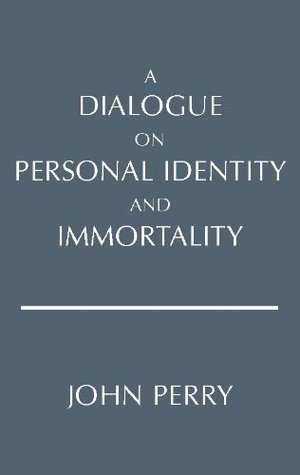More on this book
Kindle Notes & Highlights
Read between
January 22 - February 18, 2023
Hope provides comfort, and hope does not always require probability. But we must believe that what we hope for is at least possible.
I think you will live again—with or without a body, I don’t know—I draw comfort from my belief that you and I will be together again, after I also die. We will communicate, somehow. We will continue to grow spiritually. That’s what I believe, as surely as I believe that I am sitting here. For I don’t know how God could be excused, if this small sample of life is all that we are allotted; I don’t know why He should have created us, if these few years of toil and torment are the end of it—
Similarity, however exact, is not identity. I use identity to mean there is but one thing.
What is fundamentally you is not your body, but your soul or self or mind.
Since you can never, so to speak, bite into my soul, can never see or touch it, you have no way of testing your hypothesis that sameness of body means sameness of self.
Similarity of psychological characteristics—a person’s attitudes, beliefs, memories, prejudices, and the like—is observable. These are correlated with identity of body on the one side, and of course with sameness of soul on the other. So the correlation between body and soul can be established after all by this intermediate link.
You are the one who say personal identity consists in sameness of this immaterial, unobservable, invisible, untouchable soul. I merely point out that if it did consist in that, you would have no idea who I am. Sameness of body would not necessarily mean sameness of person. Sameness of psychological characteristics would not necessarily mean sameness of person. I am saying that if you do know who I am then you are wrong that personal identity consists in sameness of immaterial soul.
So, personal identity, while it may not consist of identity of an immaterial soul, does not consist in identity of material body either.
we constantly deal with objects extended in space and time. But we are seldom aware of the objects’ wholes, but only of their parts or stretches of their histories. When a statement of identity is not just something trivial, like “This bed is this bed,” it is usually because we are really judging that different parts fit together, in some appropriate pattern, into a certain kind of whole.
A person is just a whole composed of such stretches as parts, not some substance that underlies them, as I thought yesterday, and not the body in which they occur, as you seem to think. That is the conception of a person I wish to defend today.
Memory is sufficient for identity and bodily identity is not necessary for it.
Duplication of brain does not preserve identity. Identity of the person requires identity of the brain.


